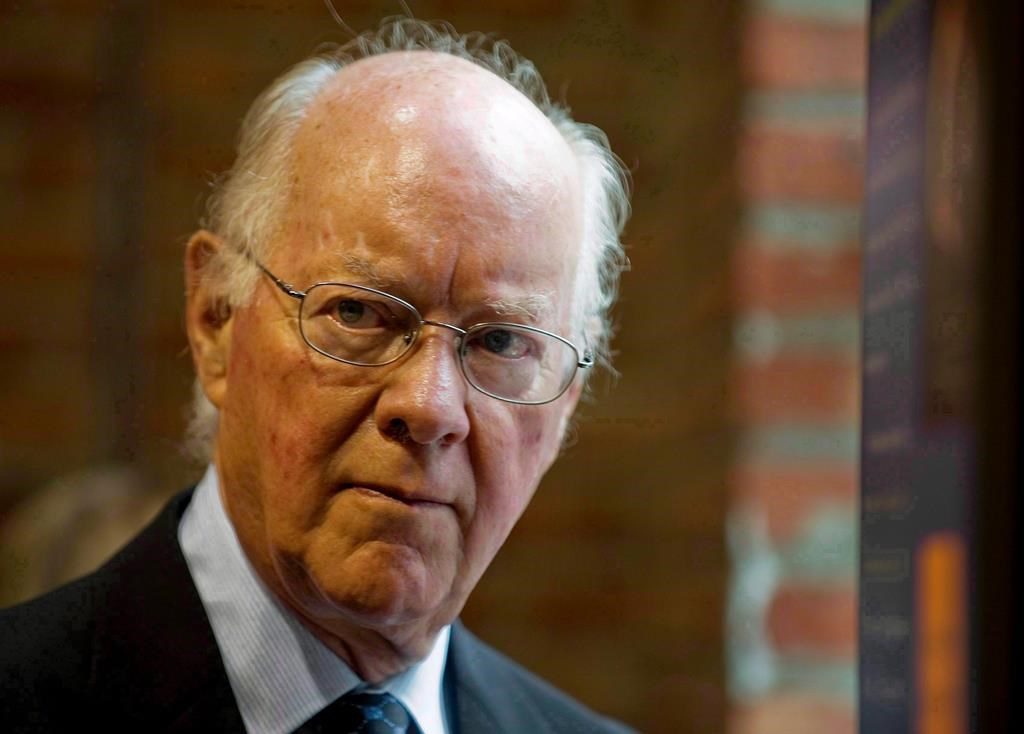Very few people have marked Canada’s political history without being themselves a politician. Retired Quebec Superior Court justice John H. Gomery was one of them. Judge Gomery passed away on May 18th at the venerable age of 88.
Of course, John Gomery was not seeking to have the political impact he had. But when he was entrusted with heading the Commission of Inquiry into the Sponsorship Program and Advertising Activities, Gomery quickly became a household name.
The Gomery Commission played a major role in recent Canadian history and was one of the key elements that brought an end to the Chrétien-Martin era of Canadian politics.
Live on television, for weeks, day in and day out, Canadians watched with fascination the hearings led by John Gomery. The drama was riveting and the ratings were high.
A slew of colourful characters made the Gomery Commission as good as any Perry Mason episode. Chuck Guité, Jacques Corriveau, Paul Coffin, Joe Morselli, Claude Boulay, Benoît Corbeil, Jean Brault, Jean Lafleur, Alfonso Gagliano, to name a few. Lawyers were interrogating and counter-interrogating, allowing Canadians to slowly appreciate the depth of the scheme and to understand the extent of the embezzlement orchestrated by the federal government under the guise of promoting national unity.
The search for the truth led to some memorable testimonies, one of which involved former Prime Minister Jean Chrétien. There was no doubt to many that when Chrétien took the stand, on February 5th 2005, it would be a memorable highlight. In fighting form, Chrétien didn’t disappoint, defending the sponsorship program and its objective to unite the country, in the wake of the 1995 referendum.
A few weeks earlier, John Gomery had granted some misguided year-end interviews calling the sponsorship program a catastrophe and commenting on Chrétien and his habit of distributing golf balls bearing the Canadian Maple Leaf, emblazoned with his signature. 300 of them were ordered as part of the Sponsorship program, at the cost of $4 a piece. Gomery made fun of these balls, calling them “small-town cheap.”
In an orchestrated crescendo at the end of his testimony, Chrétien’s lawyer set it up for the former PM. Had he ever received any golf balls during his travels as prime minister? Did he have any examples? Of course, he did. Chretien began pulling golf balls out of a suitcase. Balls from George W. Bush. Al Gore. Bill Clinton. Fidel Ramos. All small-town guys, Chrétien noted. The last ball he pulled out was from the firm Ogilvie Renault. The law firm of the Commission’s lead counsel, Bernard Roy and of Sally Gomery, the daughter of the judge.
This was classic Chrétien political theatre and an embarrassment for John Gomery.
After his retirement, Gomery admitted the comments were a mistake and that it was his one regret: “These were difficult days and I should never have done this interview,” he told Radio-Canada in 2018. The political stunt didn’t derail the commission, thought, and didn’t really change the overarching narrative.
Truth be told, John Gomery was very talkative and at times stubborn. He enjoyed the spotlight provided by the Commission, perhaps a little too much. Would things have turned out differently if not for Judge Gomery? Hard to know. It might not have been as entertaining, which was key to make the actors part of the country’s water-cooler discussions.
Nevertheless, John Gomery had a job to do and Canadians would eventually be the judges. In his report, published on November 1st, Gomery strongly blamed Jean Chrétien and his entourage for political interference in the management of the program. According to Gomery, the program served to fuel a complex system of bribes benefiting the Liberal Party of Canada. This led to the fall of the Martin government within a month and its defeat a few months later. Canadians appreciated the findings of John Gomery for what they were.
Photo Credit: The Canadian Press






